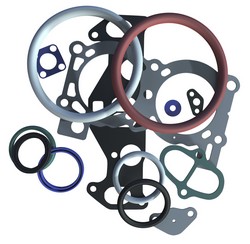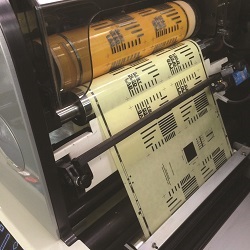New technology for low-friction seals
Europe's plastics and rubber industry is dominated by small and medium-sized enterprises (SMEs), and remaining competitive requires keeping up with new trends and opportunities. Seals join two components together, preventing leakage or mixing of contents. The job of dynamic seals is even more demanding, requiring accomplishment of those tasks while the components are rotating or moving back and forth (reciprocating). The global market for high-performance dynamic seals is large and lucrative, with hydraulic and pneumatic equipment and cars amongst the biggest customers. Associations of the European plastics and rubber industry launched the EU-funded project TDM-SEALS(opens in new window) (Cost-effective low-friction seals by texturing during moulding technology) to break into the market. Friction is a key factor affecting dynamic seal performance and lifetime. Surface texturing is known to reduce friction, but it is currently accomplished with extra laser processing after moulding, increasing the time, complexity and cost of production. TDM-SEALS used surface texture during the moulding process itself for a more than 30 % decrease in dynamic friction. A novel ceramic coating for the moulds minimised potential difficulties in removing the work piece from the textured mould. Demoulding is a critical step and texturing of the mould surface could cause 'sticking'. To this end, researchers built a test rig that can quantify demoulding forces during rubber processing. Performing comparative measurements, the test rig facilitates selection of suitable coatings that can counterbalance demoulding forces. To prove technology maturity, TDM-SEALS manufactured and tested different textured seal prototypes, ranging from simple D-ring to more complex piston seals with different materials – nitrile rubber and thermoplastic polyurethane (TPU). Researchers reported friction reduction between 20 and 50 % over the whole velocity range (1-300 mm/s) for the textured D-rings and between 20 and 45 % for the textured TPU piston seal. TDM-SEALS' novel technology should allow European SME plastics and rubber producers to move into the market of high added value products for demanding applications. This will enhance their competitive position and preserve current levels of employment. See the project video here(opens in new window).







